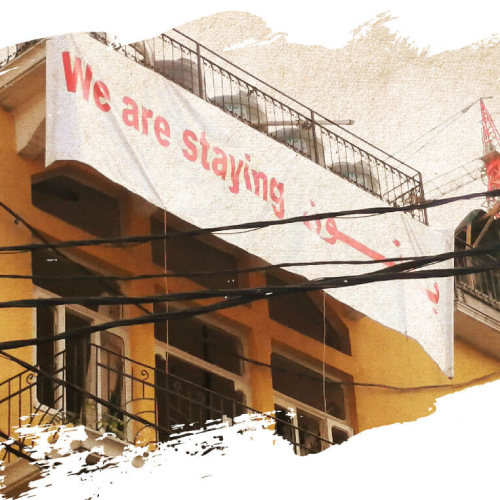Artists in Lebanon face many challenges
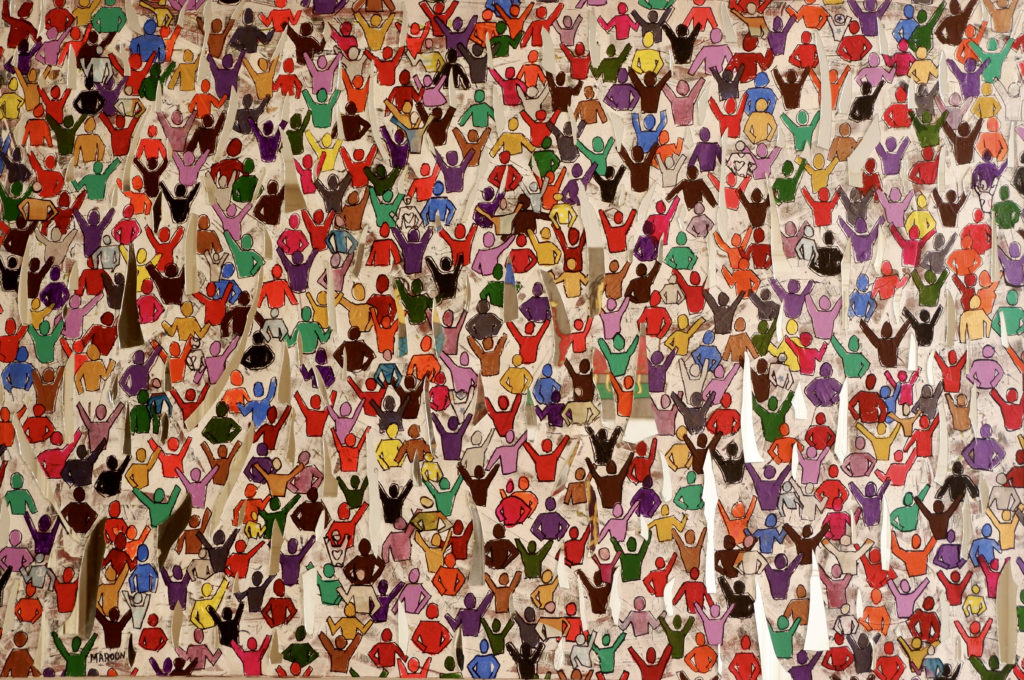
Lebanon’s multiform crises accelerated greatly in the last months, which took a toll on people’s everyday life, including artists. Indeed, the local arts and culture scene is suffering, and the challenges that artists and small creative enterprises have to face are piling up. Arleb by Nabad asked 61 established and emerging artists to identify the main challenges that need to be addressed on individual and collective levels. Here are a few of their answers:
It is difficult to speak about this situation as a Lebanese artist based in Beirut. The past decade has seen an extraordinary range of cultural activity; a new renaissance, underlining what could now be lost. If you are lucky to have a job nowadays just keep it whatever the cost or the salary; because the young generation in Lebanon now is SURVIVING. Following the October Revolution, the pandemic, the economic crisis, the Beirut blast… everyone lost their jobs, homes, shops, galleries. We all have so much anger now that we want to get out and to express and I think Art for us nowadays is the best way to do this. (Carmen Yahchouchi)
I think we have so many causes to work on as artists, so many messages to deliver, but the instability of the economy makes the people ignore the arts and limits the artists from devoting their efforts and time to making the best piece of art they can make. (Rohan Yarbug)
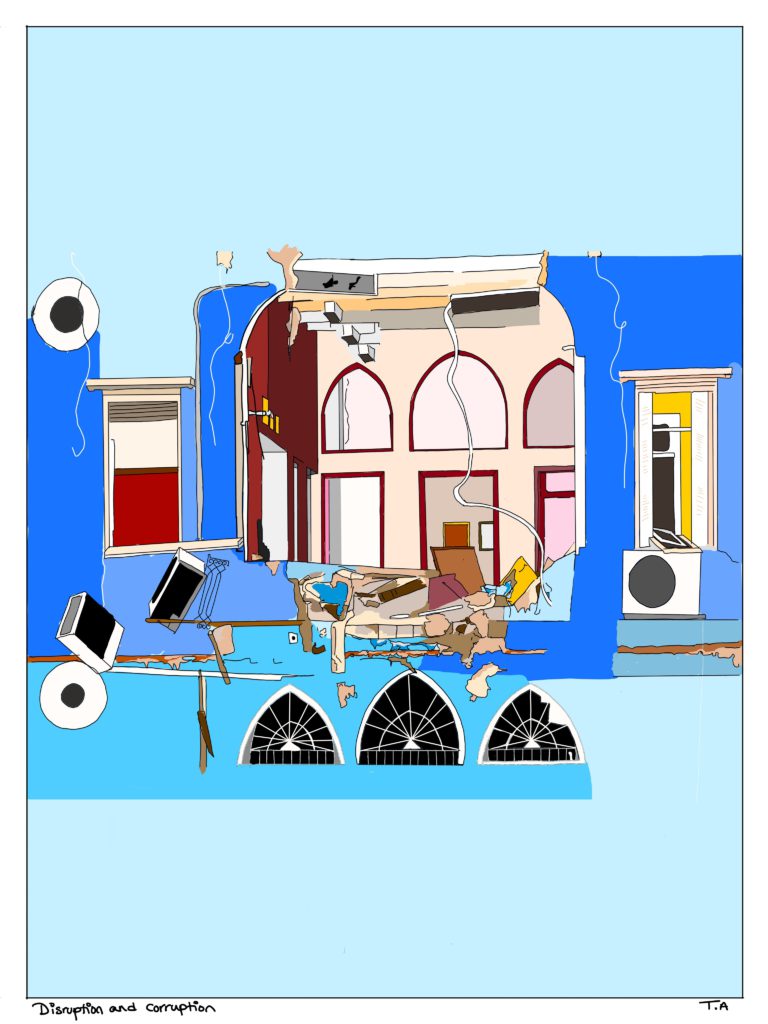
The country is facing a lot of difficulties. First, the corruption of the government and revolution, second the economical crisis and the Lebanese Lira that dropped insanely facing the USD, third the banks are holding all our money, fourth the Beirut Blast, and let’s not forget Covid 19. Honestly, artists are affected the most, starting with the nightlife that no longer exists (singers, musicians, DJs, photographers, etc…). Also, Lebanese are barely buying basic supermarket needs, so no one is really interested in buying Art at this stage. (Ingrid El Naccour)
Receiving funds, having a support system, room for creation, and gaining access to representation. Government funding for the arts is absent in Lebanon so art organizations widely receive money from foreign funds, philanthropy, and community donations. (Zahraa Hayat)
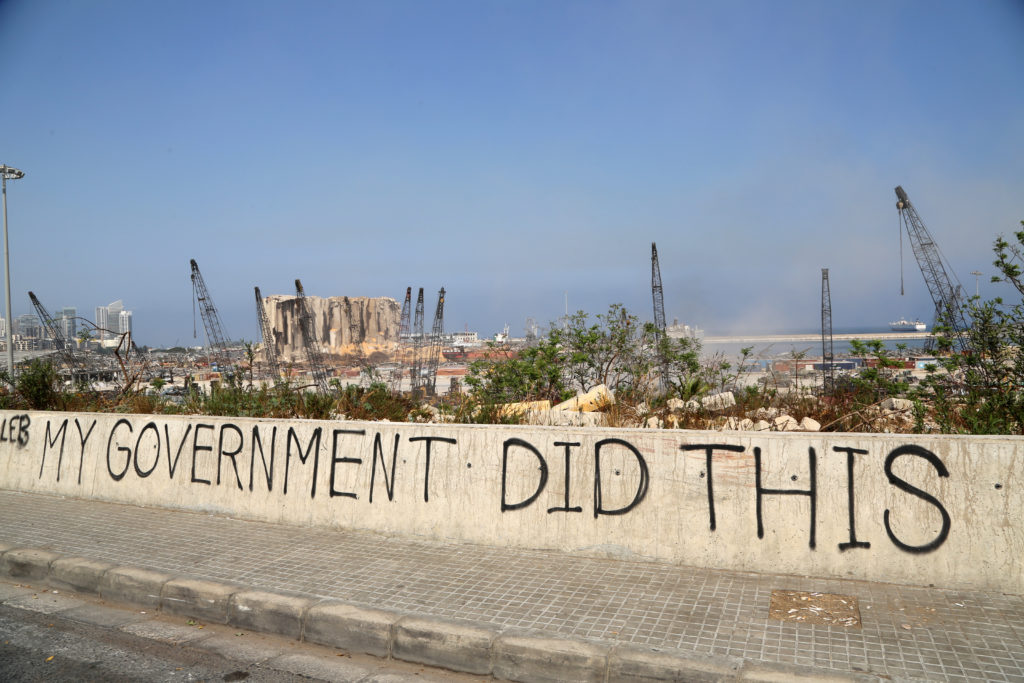
The art scene is ruled by a handful of curators and their chosen artists. And there aren’t enough platforms for emerging artists, nor for experimental forms of arts. (Manar Ali Hassan)
I think, according to my own experience, that the most difficult thing is buying art materials and furniture which have become very expensive, as well as affording a place or a studio to work in. Many artists lost their studios after the port blast. (Tamara Haddad)
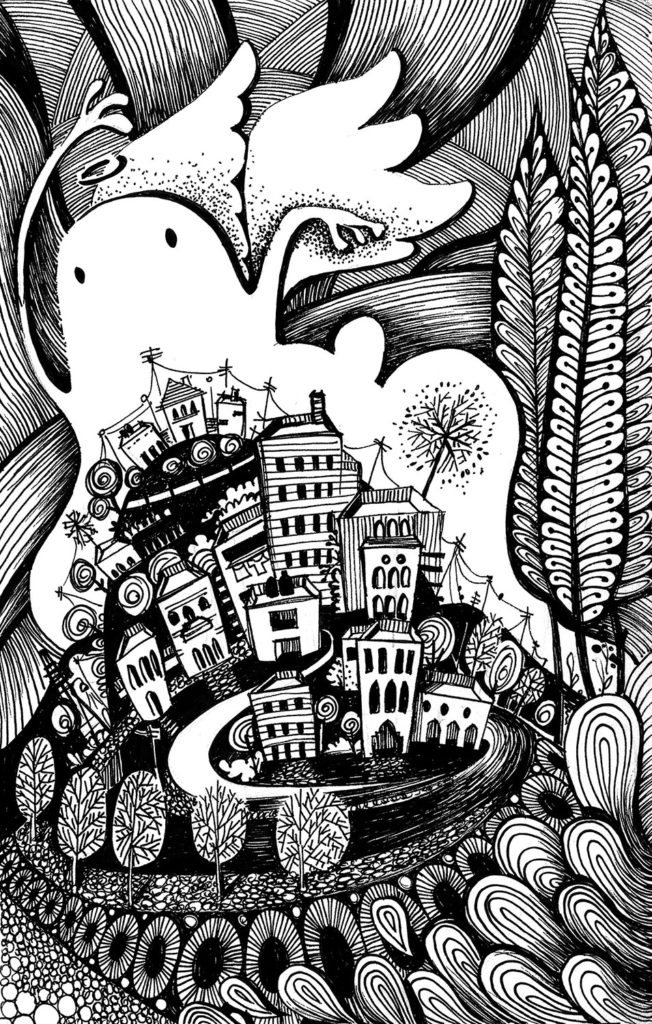
Urban Ghost, by Zarifi Haidar 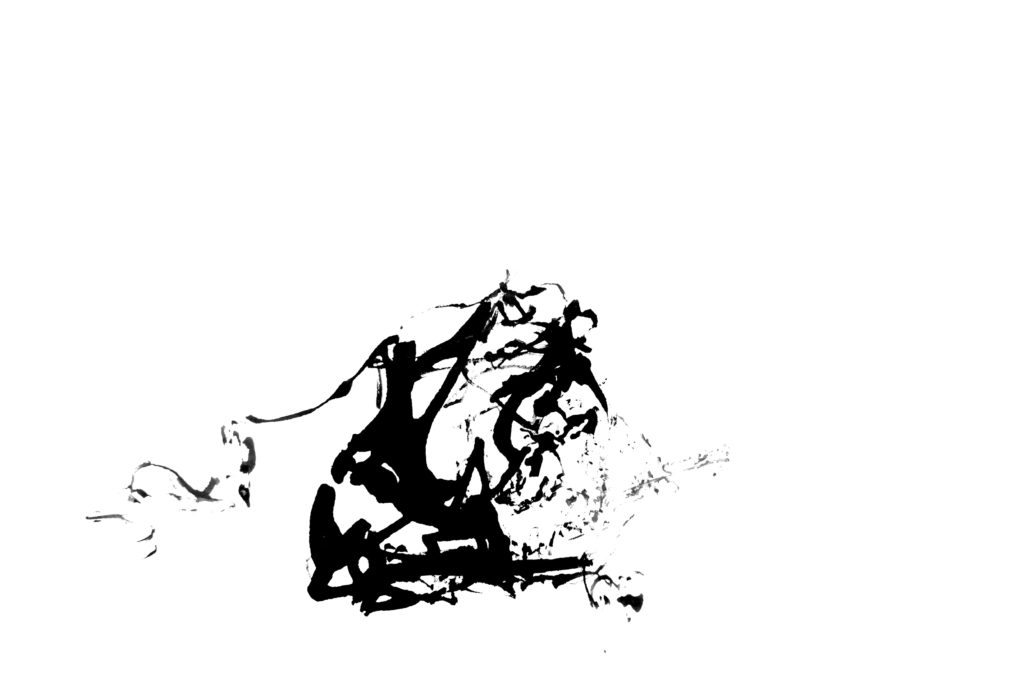
Baggage, by Samia Soubra
Bank restrictions make it impossible to renew stocks and develop production. Having a fixed selling price is nearly impossible for locals, as we have several “new currencies” on the market. (Stéphanie Cachard)
When people are in survival mode, their main focus is on the basics: food and shelter. Art becomes a luxury that cannot be afforded. Even if art provides psychological well-being and therapeutic venues of expression and healing, if people cannot afford food, how can they afford art? (Olga Safa)
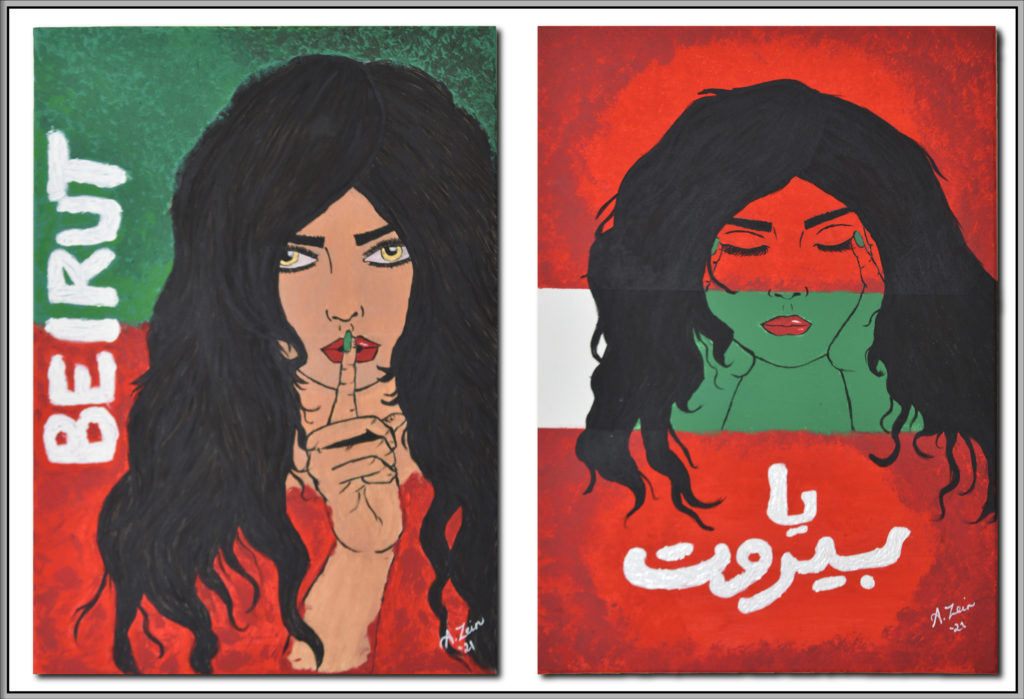
It’s not easy living in Lebanon these days, not just as an artist, but just in general. There is no denying that. Everyone is fighting a daily battle to survive. So to say artists have it harder than others is not fair, in my opinion. We’re all going through this together– the economic crisis, the pandemic, the political crisis, the aftermath of the blast– all of this has put us as a society under immeasurable stress and in an unimaginably difficult reality. And it is that reality, the struggle to maintain the bare minimum of a decent life that provides artists with probably a different kind of obstacle. The discussion becomes that of “who has time for that when we’re barely making ends meet– or when there is so much more to deal with”. When the economy is the way it is, you think it might be wiser to put the “instability” of an art-driven life aside to try and make things happen elsewhere in search of something more stable, more reliable, or more… realistic, as it were. (Yasmine Mehio)
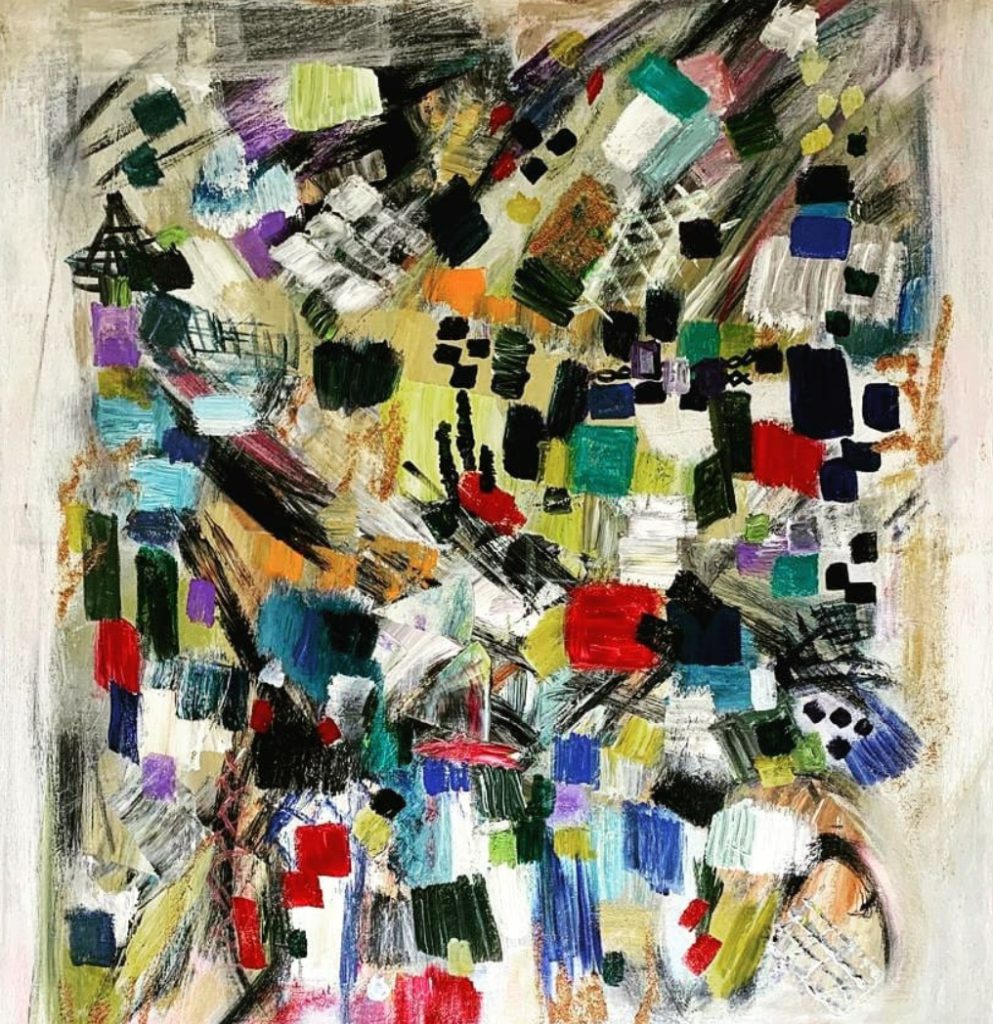
Art needs stability and internal security to be able to develop and transmit the suffering of people and contribute to change (…). Although the artistic movement was active in Beirut after the explosion, it is very slow and not free enough to give artists the necessary space, so half of the artists and critics are outside Lebanon, looking for a platform from which they can develop themselves and engage a society that appreciates their work. (Merheb Merheb)
Just like any other Lebanese person, the explosion left a hole in us that we can’t fill. A nation given a survivalist mentality finds it hard to appreciate art. The catastrophic event of August 2020 has had its repercussions on all creative fields and caused us the setbacks we are facing today. However, with the explosion and the Covid-19 epidemic, I have decided to pour all my feelings onto my canvas. I have decided to tackle the entrepreneurial setbacks in the creative field by simply having more studio time, tone out anything that is happening outside, and focus on what’s in front of me. It was hard and exhausting, however, the support I got from my friends, parents, and professors has been stellar, and I got my first full commission after the explosion which served as a stepping stone for more to come. (Ahmad Jouni)
Artists need to be part of a much bigger art ecosystem. They need to tap into new resources and collaborations where they can look into in the future and explore how they can benefit from and build something useful for their art. It has been challenging, nowadays, to find opportunities where we can benefit from advisory services, exhibitions in key locations; curatorial advice; or collaborations with individuals, communities, and institutions. (Dana Hassan)
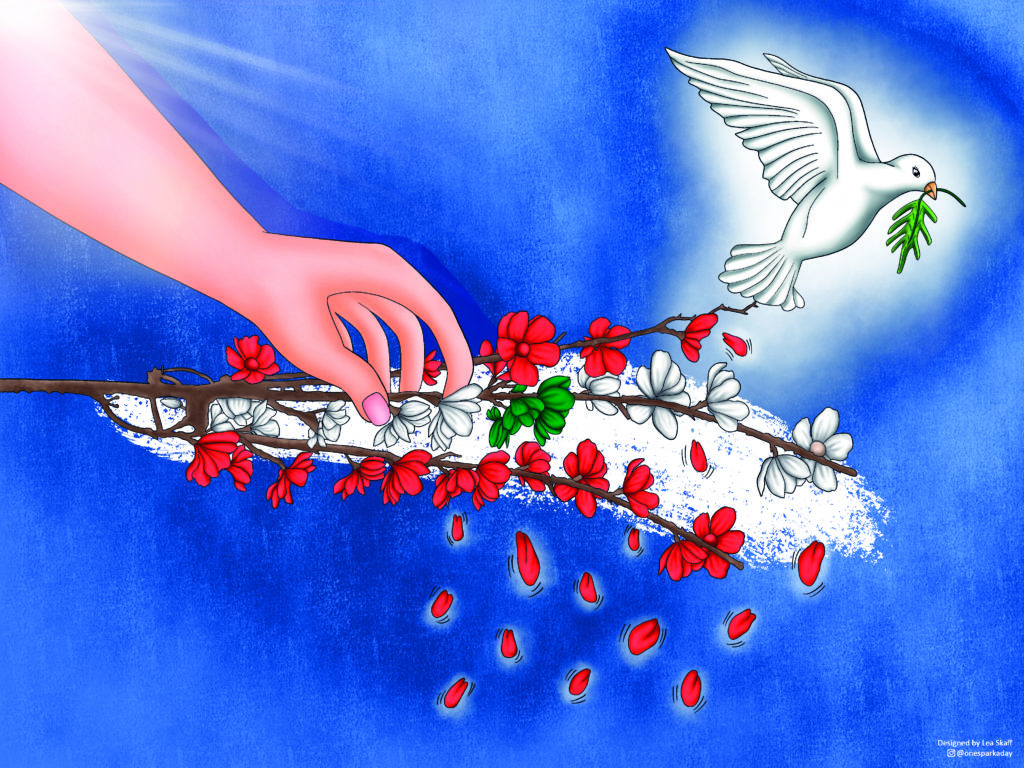
The survival of creative enterprises in Lebanon means the survival of its plurality, and freedom of expression. We will not list all the obstacles facing artists… But we will rebuild and continue… (Joyce Hatem and Dina Ariss)
In the face of economic crises, it is common to see the sale of non-necessary or “luxurious” products such as art pieces drop. Every artist and creative enterprise is rightfully torn between doing what the public likes best, or daring to stay authentic and experimentational. I think the times we live in are forcing artists to reinvent themselves, to explore deeper recesses of their minds, and create new links between disciplines to adapt to a rapidly shifting economic landscape. (Tamara Nasr)
